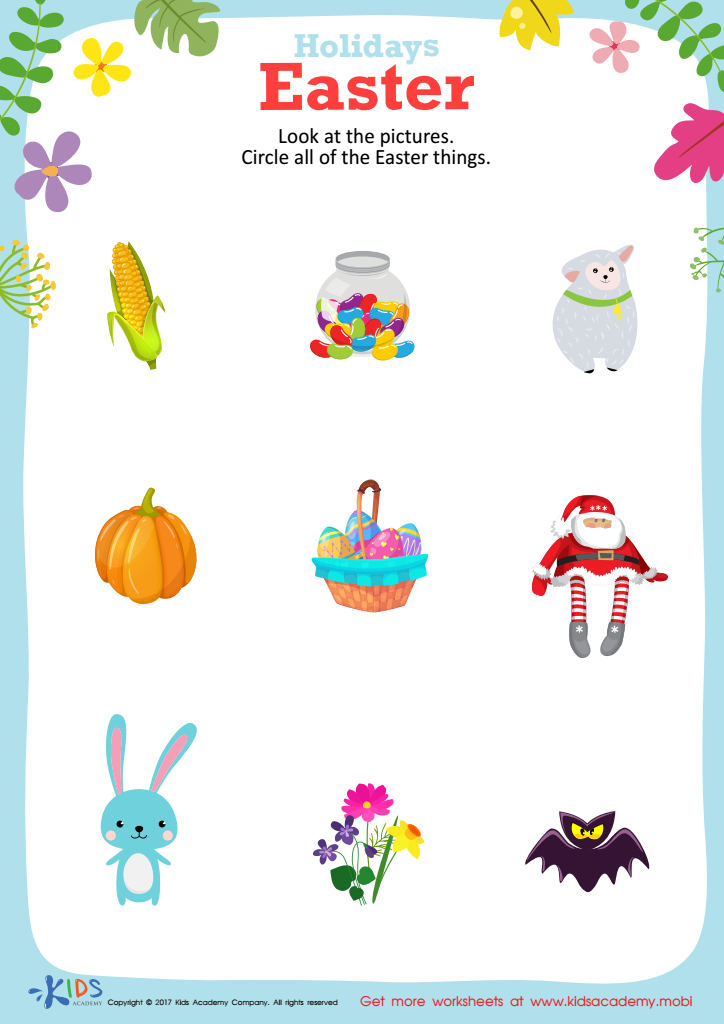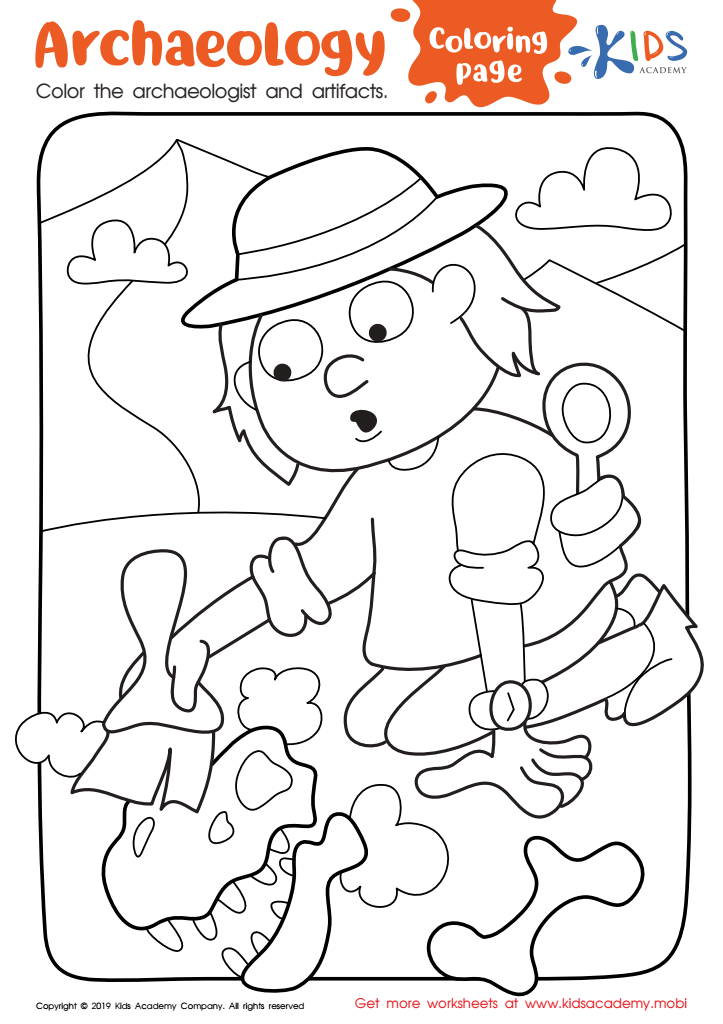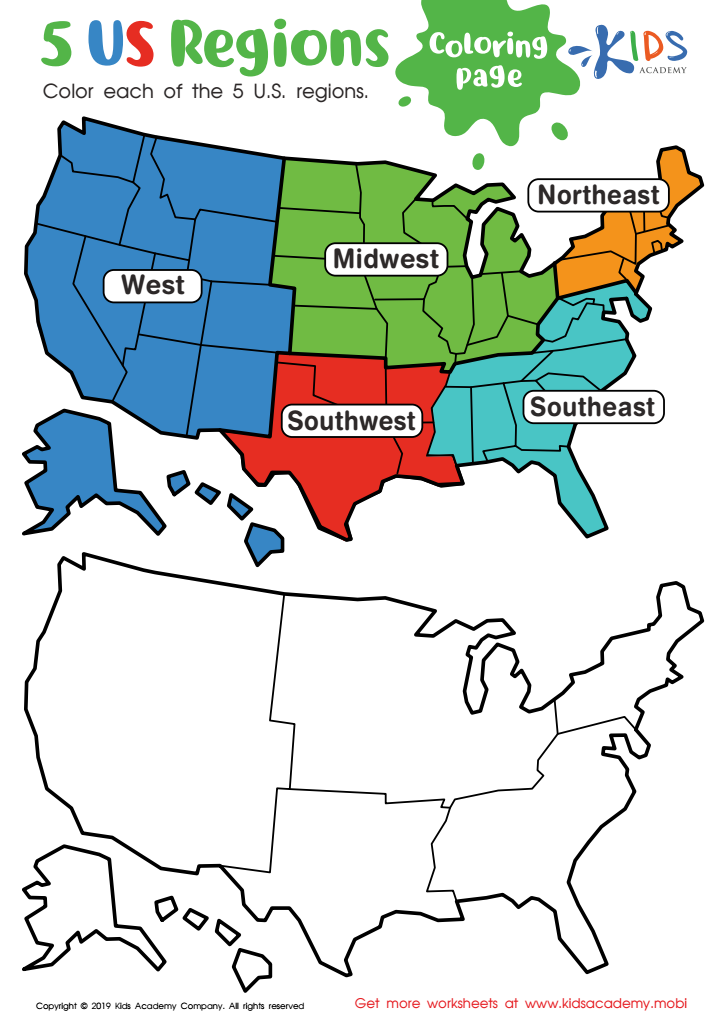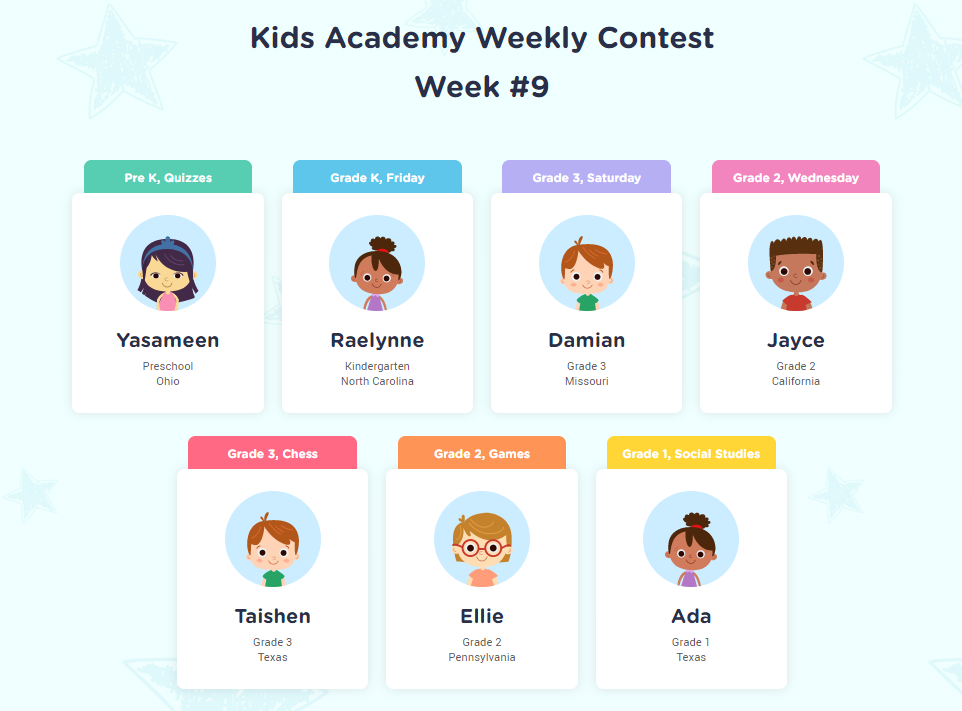Color recognition Normal Social Studies Worksheets for Ages 3-8
3 filtered results
-
From - To
Welcome to our collection of Color Recognition Normal Social Studies Worksheets, designed specifically for children aged 3-8! Our engaging and interactive worksheets feature vibrant visuals and fun activities to help young learners identify and differentiate colors while exploring social studies themes. These resources not only enhance color recognition but also promote critical thinking and social awareness through relatable concepts. Perfect for homeschool settings or classroom enrichment, our worksheets foster a love for learning and creativity. Let your child embark on an exciting educational journey that nurtures both color skills and social understanding. Download now and watch your child thrive!


Easter Holiday Printable


Archaelogy Coloring Page Worksheet


US Regions Coloring Page Worksheet
Color recognition is a foundational skill in early childhood development, particularly in the context of social studies for children aged 3-8. This skill not only enhances cognitive growth but also plays a pivotal role in fostering social awareness and cultural understanding. When children learn to identify and name colors, they improve their ability to categorize and make sense of the world around them.
For parents and teachers, promoting color recognition helps facilitate discussions about diversity and individuality. Colors are often symbolic in various cultures, and recognizing them can lead to conversations about emotions, art, and traditions linked to different backgrounds. For instance, learning about the color red might prompt discussions on its significance in various cultures, from celebrations to cultural meanings.
Additionally, teaching color recognition strengthens children's language skills. As they describe colors, they expand their vocabulary and ability to express themselves. It's also a fun, engaging way for educators and caregivers to interact with children, which can foster a positive learning environment.
Furthermore, understanding colors plays an essential role in art and creativity, allowing children to express themselves freely. In summary, prioritizing color recognition in early education enriches children's social studies learning experiences and lays the groundwork for greater cultural appreciation and communication skills.

 Assign to My Students
Assign to My Students




.jpg)















